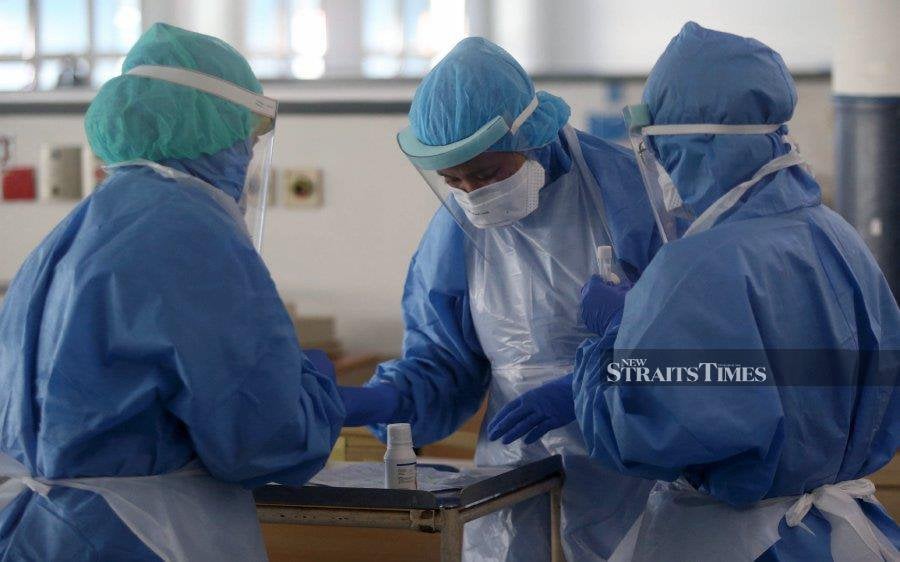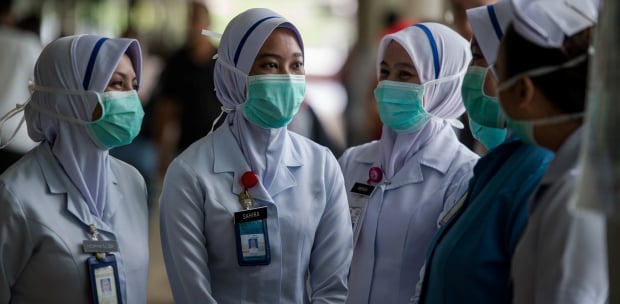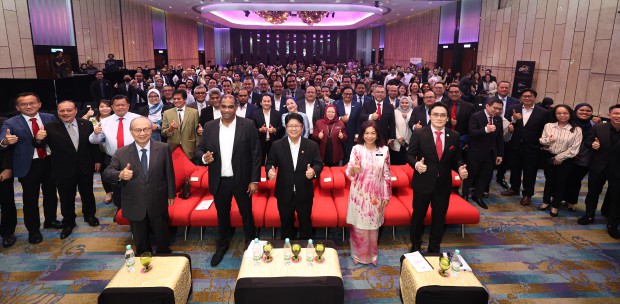KUALA LUMPUR: Despite the country being in an emergency and the public healthcare system in a critical condition, private hospitals are continuing to demand commercial rates for their services.
An expert said this had been a stumbling block in maximising health resources and that Putrajaya should do whatever it took to end lockdowns, even if it meant taking over private healthcare facilities.
Economist Professor Dr Geoffrey Williams, of Malaysia University of Science and Technology, said making money at the expense of the vulnerable was not right.
"They have not been prepared to foot these charges for the transfer of Covid-19 patients during this period."
He said private facilities, including hospitals running vaccination centres, had been charging the government administrative fees.
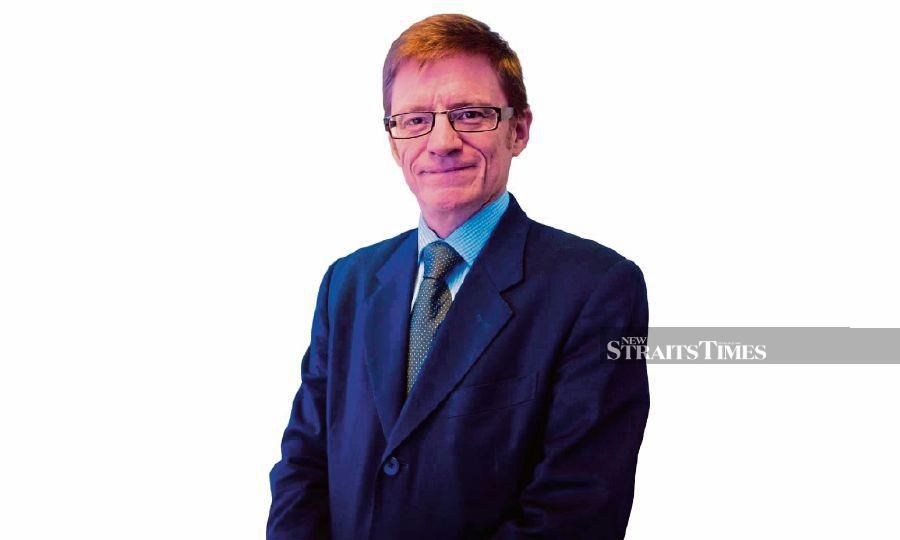
"Everyone tries to make money, even at the expense of the most vulnerable, and this has exposed the true spirit of the private system to public shame."
He said lockdowns were projected to result in 580,000 small- and medium-scale enterprises shuttering by October with seven million job losses, and the economy was slated to rebound to pre-crisis levels only in 2024.
Williams said the reputation of the facilities had also been eroded due to profiteering.
He drew on an incident last year where a private hospital was slapped with a RM200,000 fine for overcharging for face masks.
NST checks also found that most Covid-19 patients opted for public hospitals as charges in private facilities were high.
Deposits from RM20,000 to RM50,000 were levelled on patients depending on the severity of their symptoms.
A private hospital in Shah Alam, Selangor, charged a couple who had Category 3 Covid-19 RM8,000 to RM10,000 for a week's stay.
Another private hospital in the Klang Valley quoted the family of a severely ill Covid-19 patient with kidney trouble RM20,000 to RM30,000 a day.
The sum included intensive care unit charges.
Williams said private facilities would be able to survive a takeover as even though there would be costs incurred in re-purposing facilities, they would be compensated.
He said a majority of the 250-odd private hospitals in Malaysia were small, and on average, operated with fewer than 70 beds.
"The impact of Covid-19 on their revenue has been harsh as normal patients stay away. So they are quite happy for business from the Health Ministry and will accept reasonable compensation."
He said it was up to the government to offer the hospitals subsidies in terms of utilities and other charges.
"It's the big hotel-hospitals that appear to be the sticking point. They seem to want to charge full fees."
He said the government could leverage its stake and change policies in private hospitals indirectly owned by it.
Lawyer Mohamed Haniff Khatri Abdulla said the only reason for the government to enforce the emergency was to ostensibly enable it to pass laws in the name of addressing the health emergency. He said these laws could not be enacted under regular circumstances.
"So much so that one of the first laws that came into effect under the Emergency Ordinance on Jan 11 was the provision that allows the Yang di-Pertuan Agong or anyone authorised by him to seize, occupy or take over any premises to overcome the health emergency. This includes hospitals.
"And even if there is any loss suffered, the owner or private body would be compensated at a rate decided by the government."
He said if it were not for the takeover of private hospitals, the government could make do with exercising its stake in hospitals indirectly owned by Putrajaya or applying the Prevention and Control of Infectious Diseases Act 1988 (Act 342).
Meanwhile, more than 800 non-Covid-19 patients in the Klang Valley and Negri Sembilan are to be moved to 38 private hospitals by today.
Association of Private Hospitals of Malaysia president Datuk Dr Kuljit Singh confirmed this.
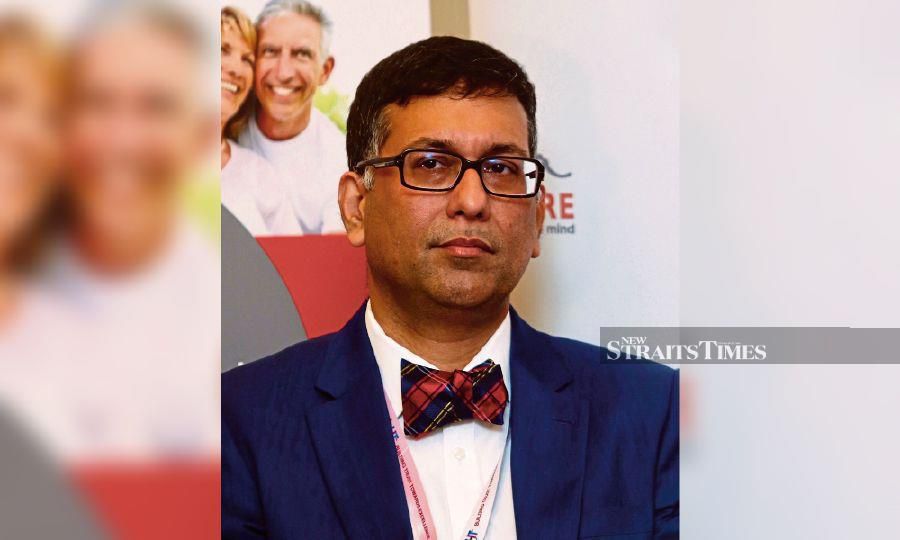
He said a number of elective surgeries and procedures in public hospitals in the Klang Valley had also been transferred to private hospitals.
He, however, said that was on a case-by-case basis under a pre-existing understanding related to the transfer of non-Covid-19 patients, between the government and the association.
Dr Kuljit was commenting on a letter addressed to him by Health Ministry secretary-general Datuk Mohd Shafiq Abdullah on Tuesday, which directed all patients in Klang Valley public hospitals, who are not being treated for Covid-19, to be transferred to private hospitals immediately.
The cost of treating patients transferred to private hospitals would be borne by the government up to a limit, and all transferred patients must receive treatment with costs as stated in the guidelines.
The ceiling cost per patient is for the lowest available charge for beds available in the ward, RM45,000 for surgery costs, RM25,000 for non-surgery costs and RM5,000 for follow-up costs.
"Private hospitals are happy that we have been given this opportunity to assist the government."
"It's not to make profits, but if possible, to cover costs. Most private hospitals are willing to give further discounts to the government to make it affordable for them."


